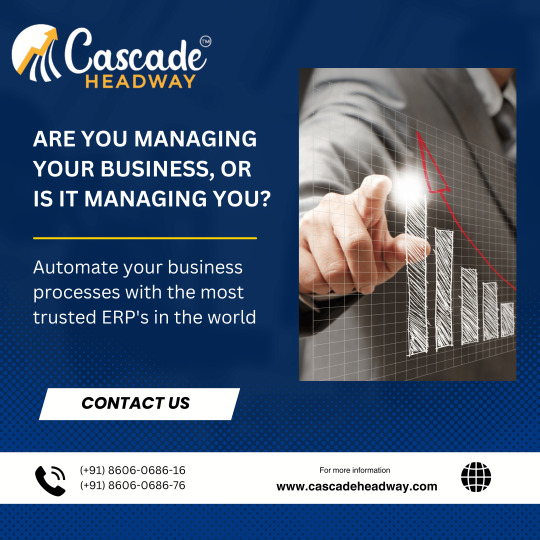Don't wanna be here? Send us removal request.
Text
Tally to Zoho Books: Ensuring Seamless Migrations
Why Migrate from Tally to Zoho Books?

In the fast-paced world of business, staying ahead requires adaptability and the ability to embrace technological advancements. When it comes to financial management, the shift from traditional accounting methods to digital solutions has been transformative. Among the numerous accounting software options available today, Tally and Zoho Books have emerged as two popular choices. Many businesses have made the switch from Tally to Zoho Books in pursuit of greater efficiency and enhanced functionality. In this blog, we will explore the reasons behind this migration and the steps to ensure a seamless transition.
The Tally Conundrum
Tally Solutions, an Indian-based software company, has long been a cornerstone of accounting and financial management for businesses of all sizes. Its robust features and user-friendly interface have made it a reliable choice for managing finances. However, as businesses expand and evolve, their accounting needs often become more complex. This is where Zoho Books comes into play.
Zoho Books developed by the Indian software giant Zoho Corporation, offers a cloud-based accounting platform designed to meet the demands of modern businesses. It provides a range of features, including invoicing, expense tracking, inventory management, and more. Many organizations are choosing to migrate from Tally to Zoho Books to leverage these advanced capabilities and streamline their financial operations
Why Migrate from Tally to Zoho Books?
Cloud-Based Accessibility: One of the primary reasons businesses are migrating to Zoho Books is the cloud-based nature of the software. Tally operates on a traditional desktop model, which limits accessibility and collaboration. Zoho Books, on the other hand, allows users to access their financial data from anywhere with an internet connection, making remote work and real-time collaboration a breeze.
Scalability: As businesses grow, their accounting needs become more complex. Zoho Books offers scalability that Tally struggles to match. It can accommodate the evolving financial requirements of small startups as well as large enterprises, providing a seamless experience regardless of your company’s size.
Integration Capabilities: Zoho Books integrates seamlessly with a wide range of other business software, including CRM systems, payment gateways, and e-commerce platforms. This integration capability streamlines operations and minimizes data entry errors, saving businesses time and effort.
Automation and Productivity: Zoho Books excels in automating routine financial tasks. From automating invoice generation to reconciling bank transactions, it reduces manual effort and minimizes the risk of errors, leading to increased productivity.
Financial Insights: Zoho Books provides comprehensive reporting and analytics tools that empower businesses to make data-driven decisions. Tally’s reporting capabilities are more basic in comparison, making it difficult for businesses to gain valuable insights into their financial health.
Ensuring a Seamless Migration
Migrating from Tally to Zoho Books can be a significant undertaking, but with careful planning and execution, it can be a smooth transition. Here are the key steps to ensure a seamless migration:
Evaluate Your Requirements: Before making the switch, assess your business’s specific accounting needs. Identify the features and functionalities that are critical for your operations in Zoho Books and ensure they align with your business goals.
Data Preparation: Clean and organize your financial data in Tally before migrating. This includes updating records, reconciling accounts, and resolving any discrepancies. Proper data preparation is crucial to avoid data corruption during the migration process.
Backup Data: Take a complete backup of your Tally data to ensure that you have a safe copy of your financial records in case of any issues during migration. Data loss can be a significant setback for any business.
Seek Professional Assistance: Consider enlisting the help of accounting professionals or consultants who are experienced in Tally-to-Zoho Books migrations. Their expertise can be invaluable in ensuring a smooth transition.
Choose the Right Migration Tools: Zoho Books offers migration tools and services that can simplify the transition process. These tools can help convert your Tally data into a format compatible with Zoho Books.
Training and Familiarization: Train your finance and accounting teams on how to use Zoho Books effectively. The software may have a different interface and workflow from Tally, so ensuring your team is comfortable with it is crucial.
Pilot Testing: Conduct a pilot migration with a small set of data to identify and rectify any issues or discrepancies. This allows you to fine-tune the migration process before migrating all your data.
Data Migration: Once you are confident in the pilot test results, proceed with the full data migration. Ensure that all data, including financial transactions, customer records, and vendor details, are accurately transferred to Zoho Books.
Post-Migration Validation: After migrating your data, perform thorough validation checks to confirm the accuracy of the data in Zoho Books. This includes reconciling accounts and verifying that all transactions are accounted for correctly.
Continuous Support: Provide ongoing support to your team as they adjust to using Zoho Books. Address any issues promptly and continue to monitor the software’s performance to ensure it meets your business needs.
In today’s dynamic business landscape, adaptability and efficiency are paramount. Migrating from Tally to Zoho Books can help your organization embrace the future of accounting and financial management. With careful planning, data preparation, and the right support, you can ensure a seamless transition that unlocks the full potential of Zoho Books for your business. Remember, the key to a successful migration is a well-executed plan that addresses your unique business requirements. Make the move, and empower your organization to thrive in the digital age.

The Cascade Headway Advantage
1. Zoho-Specific Chartered Accountants: A prevalent gap in the market is the shortage of CAs specializing in Zoho audits. Cascade Headway fills this void with a team of seasoned chartered accountants who are Zoho specialists, ensuring that your data isn’t just transferred but optimized for your new platform.
2. Customized Migration Services: Every business is unique, and so is its data. With their comprehensive training, our experts ensure a personalized migration from Tally to Zoho, from intricate financial statements to individual transaction details.
3. Bank Reconciliation & Yearly Audits: We offer detailed bank reconciliation services beyond the migration, aligning your statements with migrated data. Plus, if your business requires past financial data to be migrated and audited, our year-by-year audit service has you covered.
4. Chart of Accounts Preparation: Starting afresh on Zoho Books or restructuring your financial operations? We provide a meticulous chart of accounts preparation, ensuring your financial structure aligns with your business goals.
5. Vendor and Customer Portal Facilities: Enhance your business relationships with dedicated vendor and customer portals. We help set up and customize these portals to facilitate smooth interactions, transactions, and relationship management.
6. Seamless Integrations: The power of Zoho Books is amplified when integrated with other software solutions, whether within the Zoho suite or external applications. Our team is adept at integrating Zoho Books with other software tools, ensuring a unified, efficient, and comprehensive business operation platform.
7. Personalized Migration Services: Cascade Headway offers a bespoke migration service, ensuring that each detail, from complex financial statements to individual transactions, is transferred seamlessly and accurately from Tally to Zoho.
Your Business Future, Amplified
Considering a shift to Zoho Books? Cascade Headway is more than ready to assist. With our expertise, not only can you transition smoothly but also maximize Zoho Books’ potential, including its advanced inventory features.
We understand that in business, time is of the essence. If you’re seeking a partner to navigate the complexities of modern digital accounting, we invite you to explore what Cascade Headway can offer. Our commitment is not just to ensure a hassle-free migration but to position your business for future financial success.
Let’s embark on this journey together. Reach out to Cascade Headway, and let’s shape the future of your financial management.
0 notes
Text
Streamlining Business Operations: Harnessing the Power of ERP for Automation

In today’s fast-paced business landscape, staying competitive and efficient is more crucial than ever. To achieve this, organizations are turning to Enterprise Resource Planning (ERP) systems to automate various aspects of their operations. ERP systems are powerful tools that can streamline processes, improve productivity, and enhance decision-making. In this article, we will explore the significance of business automation using ERP systems and how they can transform the way companies operate.
Understanding ERP Systems
Before delving into the benefits of business automation using ERP, it’s essential to understand what ERP systems are. ERP stands for Enterprise Resource Planning, and these systems are comprehensive software solutions designed to integrate and automate various business processes. These processes can include finance, human resources, supply chain management, inventory control, customer relationship management, and more. ERP systems provide a centralized platform that allows organizations to manage and access critical data efficiently.
The Evolution of ERP
ERP systems have come a long way since their inception. Initially, they were primarily focused on automating core functions like accounting and finance. However, modern ERP systems have evolved to encompass a broader range of business functions and are often modular, allowing companies to choose the specific components that align with their needs. The evolution of ERP has been driven by advances in technology, including cloud computing, artificial intelligence, and data analytics. These innovations have made ERP systems more powerful and accessible to businesses of all sizes.

Now, let's explore how ERP systems can benefit businesses through automation:
Improved Efficiency: ERP systems automate repetitive and time-consuming tasks, reducing the risk of errors and freeing up employees to focus on more strategic activities.
Enhanced Collaboration: ERP systems provide real-time access to data across departments, promoting better communication and collaboration among teams.
Data Accuracy: By centralizing data, ERP systems reduce the chances of data discrepancies and ensure that decision-makers have access to accurate and up-to-date information.
Streamlined Workflows: ERP systems enable the optimization of workflows, making processes more efficient and reducing bottlenecks.
Cost Reduction: Automation can lead to significant cost savings by reducing the need for manual labor, minimizing inventory carrying costs, and improving resource allocation.
Better Decision-Making: Access to comprehensive data and analytics tools within ERP systems allows organizations to make data-driven decisions, leading to more informed and strategic choices.
Some Key Features of ERP Automation
To fully grasp the potential of ERP systems for automation, it’s essential to understand some of their key features:
Integration: ERP systems consolidate data from various departments and systems into a single, unified platform.
Workflow Automation: They automate workflows by setting up rules and triggers that guide processes through predefined steps.
Reporting and Analytics: ERP systems provide robust reporting and analytics tools, enabling organizations to gain insights into their operations.
Scalability: ERP systems are scalable, allowing companies to adapt and grow without significant disruptions.
Customization: Many ERP solutions offer customization options to tailor the system to specific business needs.
Manufacturing: ERP systems help manage production, inventory, and supply chain processes efficiently.
Retail: They optimize inventory management, track customer data, and improve customer service.
Healthcare: ERP systems enhance patient care through better resource allocation and streamlined administrative processes.
Finance: ERP automates financial processes like accounting, billing, and payroll, ensuring compliance and accuracy.
Construction: ERP helps manage complex projects, track resources, and streamline procurement.
Services: Professional services firms use ERP to manage projects, allocate resources, and track client data.
Cost: ERP implementation can be expensive, with costs including software licenses, hardware, consulting, and training.
Resistance to Change: Employees may resist new processes and systems, leading to a period of adjustment.
Data Migration: Migrating existing data into the ERP system can be challenging and time-consuming.
Integration with Existing Systems: Compatibility with existing software and systems can be a hurdle.
Customization: Customizing the ERP to meet specific business needs may require additional time and resources.
Plan Thoroughly: Develop a comprehensive implementation plan that includes timelines, milestones, and resource allocation.
Train Employees: Provide training and support to help employees adapt to the new system.
Data Migration: Invest time and effort into ensuring accurate data migration from existing systems.
Monitor and Evaluate: Continuously monitor the ERP system’s performance and gather feedback from users for improvements.
Future Trends in ERP Automation
The future of ERP automation holds exciting possibilities. Here are some trends to watch for:
AI and Machine Learning: Integration of AI and machine learning will enhance predictive analytics, allowing for more proactive decision-making.
Cloud ERP: Continued migration to cloud-based ERP systems will offer scalability, flexibility, and cost-efficiency.
IoT Integration: The Internet of Things (IoT) will play a significant role in ERP by providing real-time data from connected devices and equipment.
Mobile Accessibility: Mobile ERP applications will become increasingly important for remote access and on-the-go decision-making.
Enhanced Security: As data security concerns grow, ERP systems will focus on improving cybersecurity measures.
In an era where efficiency and competitiveness are paramount, business automation using ERP systems is no longer a luxury but a necessity. These powerful tools streamline processes, improve decision-making, and drive cost savings. While implementing ERP automation may present challenges, careful planning and adherence to best practices can lead to a successful outcome. As ERP systems continue to evolve and incorporate emerging technologies, businesses that embrace automation will be better positioned to thrive in a rapidly changing business landscape.
About us
We are more than Business Pathfinders. We are more than just Finance Software developers. We are Business Pathfinders here at Cascade Headway. Our sole aim is to find ways to improve your business efficiency and scalability.
We always do our homework.
With the expertise of a dedicated and experienced squad of Chartered Accountants, IT Consultants, Tax Practitioners, etc., we serve as a resource facilitator for many aspects of your enterprise. We have invested countless hours into honing the skills, personnel, and tools necessary to enable the deployment of custom solutions to service all the needs of your growing business while maintaining its integrity and scalability.
We believe in the future of finance.
We specialize in the use and deployment of various ERP resources and ancillary programming that aid to boost your business performance in the long run. Our personnel are well-versed in ERPs such as ZOHO, Odoo, Accu360, Microsoft Dynamics, SAP etc. Not only does that provide your business with a wide range of options, it allows you the freedom to customize the way these ERPs can work for you.
We believe in quality and peak customer service ability.
Take what you need. Leave behind what you don’t. If you still find it difficult to handle it, our personnel are on standby to take the load off your business by handling it for you. Our squad of experts is driven to provide you with the facilities you need to take your business to the next level. That is why Cascade Headway is the right way.
0 notes
Text

Our expert advisory services are here to guide you through the dynamic realm of financial trends, ensuring your strategies stay ahead of the curve! Contact us today on this exciting journey toward financial success.Our squad of experts is driven to provide you with the facilities you need to take your business to the next level. That is why Cascade Headway is the right way.
0 notes
Text
Automating business processes with an Enterprise Resource Planning (ERP) system can significantly enhance efficiency, streamline operations, and improve overall decision-making. We are Business Pathfinders here at Cascade Headway. Our sole aim is to find ways to improve your business efficiency and scalability.
Click here to know about us.

0 notes
Text

This 14yr Old Girl coincidentally found her grandmother in an oldage home which she was made to visit during her school trip Her parents had dropped off the old lady in the oldage home& had told the girl she is staying with some relative Love brought them together again..
1 note
·
View note
Text
Digital Marketing
The concept of digital marketing can be traced back to the early 1990s when the internet started gaining popularity. However, the term "digital marketing" itself became more prevalent in the 2000s as businesses began to recognize the significance of promoting their products and services online.
The emergence of search engines like Yahoo! (1994) and Google (1998) provided opportunities for businesses to optimize their websites for better visibility in search results. This led to the development of search engine optimization (SEO) techniques to improve organic rankings.
In the late 1990s and early 2000s, email marketing gained traction as a way to reach customers directly through their inboxes. Companies started building email lists and sending promotional messages to subscribers.
The rise of social media platforms in the mid-2000s, such as Facebook (2004) and Twitter (2006), opened up new avenues for digital marketing. Brands began to establish their presence on these platforms, engaging with their audience and running targeted ad campaigns.
Around the same time, Google launched Google AdWords (now Google Ads) in 2000, introducing pay-per-click advertising. This allowed businesses to bid on keywords and display ads alongside search results, driving traffic to their websites.
With the proliferation of smartphones and mobile devices, mobile marketing gained prominence. Marketers started adapting their strategies to target mobile users, optimizing websites for mobile devices and utilizing mobile apps.
The field of digital marketing has continued to evolve rapidly with the advent of new technologies and platforms. Today, it encompasses a wide range of strategies and tactics that help businesses reach their target audience, build brand awareness, and drive conversions in the digital realm.
Digital marketing refers to the practice of promoting products, services, or brands using various digital channels and technologies. It encompasses a wide range of online marketing tactics aimed at reaching and engaging with a target audience to drive brand awareness, generate leads, and ultimately drive sales or conversions. Here are some key aspects and strategies within digital marketing:
Search Engine Optimization (SEO): SEO focuses on optimizing websites and content to improve their visibility in search engine results. The goal is to increase organic (unpaid) traffic by improving website rankings for relevant keywords.
Pay-Per-Click Advertising (PPC): PPC involves placing targeted ads on search engines and other digital platforms. Advertisers pay a fee each time their ad is clicked. Popular PPC platforms include Google Ads and Bing Ads.
Social Media Marketing: This involves using social media platforms like Facebook, Instagram, Twitter, and LinkedIn to reach and engage with a target audience. It includes creating and sharing content, running ads, and fostering customer interactions.
Content Marketing: Content marketing involves creating and sharing valuable, relevant, and consistent content to attract and retain a clearly defined audience. Content can take various forms, such as blog posts, videos, infographics, eBooks, and more.
Email Marketing: This strategy involves using email to send targeted messages to a subscriber list. Email marketing is used to nurture leads, build relationships with customers, and promote products or services.
Influencer Marketing: Influencer marketing leverages the reach and influence of popular individuals or "influencers" on social media to promote products or services. Brands collaborate with influencers who have a relevant audience to create sponsored content.
Affiliate Marketing: Affiliate marketing is a performance-based strategy where affiliates earn a commission for promoting and driving sales for another company's products or services. Affiliates are typically rewarded based on the number of conversions they generate.
Mobile Marketing: With the increasing use of smartphones, mobile marketing focuses on reaching users on their mobile devices through strategies like mobile ads, mobile-optimized websites, and mobile apps.
These are just a few examples of digital marketing strategies. The field is continually evolving as new technologies and platforms emerge. It's important for marketers to stay updated on the latest trends and best practices to effectively reach their target audience in the digital landscape.
#digital marketing#seo optimization#search engine optimisation company#website#online money making#affiliate marketing#influencers#marketing#business#content editing
1 note
·
View note